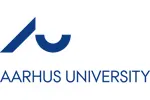

| The award | How you will study | Study duration | Course start | Domestic course fees | International course fees |
|---|---|---|---|---|---|
| MSc | Full-time | 4 semester | September | 0 | EUR 0 per year |
We are what we eat. The key message here, from health gurus and medical professionals alike, is that people need to tackle their health problems by eating the right food in the right quantities. Science shows a strong correlation between our health and the composition and quality of the food we eat.
The MSc programme in Molecular Nutrition and Food Technology provides you with the tools and knowledge you will require to develop nutritious foods designed to reduce the risks of developing health issues such as obesity, diabetes, heart disease, allergy, and cancer. In addition you will acquire knowledge of food technology and of processes that affect food quality and functionality, as well as consumers' choice of foods.
UNIQUE COMBINATION OF FOOD TECHNOLOGY, NUTRITION AND HEALTH
The MSc in Molecular Nutrition and Food Technology is a collaborative effort between four disciplines at Aarhus University - food science, molecular biology, medicine, and business administration. This broad foundation means that you will be taught by experts in these fields, but also that the programme provides a holistic understanding of the path that food takes from field to fork, including raw material quality, ingredients, and food technology.
On the programme you will gain insight into how new processing methods affect the functional characteristics of foods. You will acquire a thorough knowledge of molecular biology and technical skills at the all-important juncture between food technology, nutrition, and health.
RESEARCH SUPPORT
Within the programme, students choose to specialise either in molecular nutrition or food science/technology. You can choose to collaborate with relevant research groups in one of the main disciplines in connection with project work and with your thesis. Alternatively, you can choose to write your thesis within an R&D department in a private company in the food industry.
STUDENT LIFE
Students on this programme are based at the University Park campus in Aarhus, where a number of student organisations arrange academic activities, excursions, celebrations, and social functions.
CAREERS
Many graduates from the MSc in Molecular Nutrition and Food Technology have pursued careers in R&D. Others have taken up roles within advisory or administrative departments in the food industry, as well as in the public sector. Some graduates have used the MSc as the foundation for an academic career - you can apply for admission to the university's PhD programme either after the first year of the MSc degree or following completion of your thesis.
A WORLD RESEARCH LEADER
Aarhus University's research in Agricultural and Food Sciences is cutting edge and puts it in the front rank of agricultural science institutions worldwide. The core areas of research are climate and natural resources, environment and bioenergy, organic farming, food quality, farm animal production, and plant production.
Sustainability is a fundamental principle. The goal is to seek solutions that contribute to environmentally and economically sustainable development of the agricultural and food industries.
IN THE RANKINGS
Agricultural sciences by subject at Aarhus University rank twenty-second in the world in the 2020 US News Best Global Universities ranking, and in the 2019 National Taiwan University ranking are nineteenth in Agricultural Sciences by subject. Agriculture and Forestry at AU is ranked thirty-fifth in the 2020 QS World University Rankings by subject.
All EU/EEA/Swiss citizens are exempt from payment of tuition fees.
In general, admission to a Master’s degree programme requires successful completion of a relevant and recognised university degree equivalent to a Danish Bachelor’s degree in level and length (180 ECTS). All applications must also fulfil the English language requirements.
Find more information about the admission requirements, application procedure and deadlines at Aarhus University.
In addition, you must meet the specific requirements for the Molecular Nutrition and Food Technology programme, which can be found on the Molecular Nutrition and Food Technology study programme page.
Below are some suggested courses at other providers that you may also be interested in:
If you do not meet the entry requirements for this course then consider one of these postgraduate preparation courses from another institution:
Graduate Diploma of Engineering (Safety, Risk and Reliability)
Engineering Institute of Technology
Find out morePre-Master's Diploma - English Language and Study Skills
Oxford Brookes University Pathways
Find out moreThere are 56 other courses listed from Aarhus University. A selection of these are displayed below:
Find out more about studying in Denmark